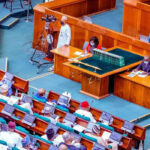By Godwin Onuh Odeh
National Youth Service Corps (NYSC), one of the instruments to fostering national integration constructed by the Nigerian Military Government is now fifty years old. But arguably, the history of integrating Nigerian people dates to 1914 and even beyond when the epic marriages of the Northern and Southern Protectorates.
The popular 1914 amalgamation essentially aimed at reducing administrative cost and maximizing economic benefits to the British Empire. Arising from this, in principle and practice it is doubtful whether Nigeria’s unity was the actual and paramount agenda of the British as imperial and colonial administrators one after another were bent on fanning the ember of division by the tactics of divide-and –rule.
The commutative consequences of the failure colonial regime in national integration enterprise featured in the first post-colonial government of the 1960 and those thereafter, which have failed to produce nationhood by dismantling walls of differences between Nigerian ethnic and religious groups. This colonially inherited challenges were to lead to series of coup and counter coups and the eventual ferocious fratricidal war fought between 1967 and 1970.
Consequent upon the war, the Federal Government unveiled the post war national unity and integration package embodied in the policy of Reconciliation, Rehabilitation and Reconstruction. The NYSC was one of the offshoots of this post war policy. Adebayo Adedeji, the first Chairman of the NYSC Directorate Board succinctly captured this in the following words:
It has become abundantly clear to discerning observers of the Nigerian political scene that to build enduring national unity, Nigerian youths from all ethnic groups ought to be mobilized and put in the forefront of the task of nation building and integration…patriotism, dedication to the different ethnic groups that constitute the people of Nigeria ought to be deliberately engineered and nurtured.
The above was established and reinforced by Decree No. 24 of 22nd May 1973 which established NYSC. It was later repelled by Decree No. 51 of 16th June 1993, later amended as NYSC ACT CAP N84 Laws of the Federation 2004.
In short, challenges such as ethnic, religious and regional differences which manifests today in the areas of state of origin, religious affiliations and geopolitical zones were clearly captured in the founding objectives of the Scheme. The paragraph “d” lines i, ii and iii and paragraphs “e” and “f” of the objectives of NYSC states thus:
to develop common ties among our youths and promote national unity by ensuring that: as far as possible, youths are assigned to job in the states other than their states of origin; each group, assigned to work together, is a representative of the country as possible; the youths are exposed to the mode of living of the people in different parts of the country with a view to removing prejudices, eliminating ignorance and confirming at first hand the many similarities among Nigerians of all ethnic groups;
to encourage members of the corps to seek, at the end of their corps service , career employment all over the country , thus promoting free movement of labour; and, to induce employers , partly through their experience with corps members , to employ more readily qualified Nigerians irrespective of their states of origin.
The above objectives appears laudable and timeless, has to over the years contend with forces of ethnicity, religion and regionalism embedded in the politics of the state of origin and indigeneity, federal character and quota system. While several best performing corps members were retained and employed in States other than theirs, others good corps members were sacrificed on the altar of this politics; discriminated against and denied jobs on the ground of tribe, religion and state of origin. Of worthy of note in the last fifty years, are corps members who made supreme sacrifice and were killed through ethno religious violence and post-election conflicts rooted in the ethnic and religious chauvinistic tendencies that has become endemic in Nigeria. This appear to have given credence to the idea that the tree of nation building and integration in a complex society like ours is at time watered by the blood of its compatriots.
Added to the good and the bad in the last fifty years, of about five million graduate youths that have participated in the scheme has made friends, built bridges, entered into marriages with fellow corps members, all across ethnic, linguistics, religious and regional boundaries thereby promoting national unity and integration.
Be that as it may, a careful survey of the founding objectives of NYSC shows that, out of the eight objectives, only the last three focuses on national unity, removing prejudice and developing a common destiny. Thus, it shows the entire load and blame cannot be put at the door step of the NYSC as other institutions of government too are part of national integration project.
In conclusion therefore, since the task of integration or building a nation in a multi ethnic and religious State is a conscious and gradual process that involve accommodating different interests and views and, since NYSC itself is not yet in a state of total perfection, stakeholders and scholars should constantly put heads together inform of organized forum such as conferences or congress, retreats, seminars, symposium and workshop for fruitful deliberation on key achievements, challenges and the way forward. This should be done on quarterly or annual basis as the scheme turn fifty.
*Dr. Odeh, Senior Lecturer, specialist in NYSC and youth studies, wrote this piece from the Department of History, Sokoto State University, Sokoto-Nigeria


